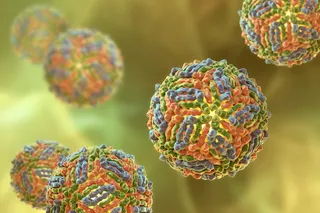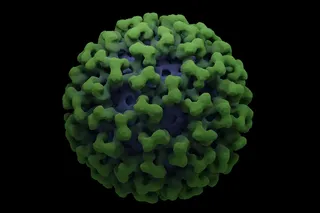After many frustrating years, AIDS researchers finally have reason to believe that the human immunodeficiency virus (hiv) can be controlled. Several studies reported in 1996 found that a combination of drugs could sharply curtail the amount of virus in the bloodstream--in many cases reducing it to undetectable levels. Since the virus count is the best predictor of how the disease will progress, it now seems that aggressive drug therapy may provide a powerful weapon against aids.
The recent successes depend on the addition of a new class of drugs, called protease inhibitors, to the anti-hiv arsenal. The older antiviral drugs--such as azt and 3tc--block reverse transcriptase, an enzyme the virus needs to copy its genetic material into a host cell’s DNA. Protease inhibitors, in contrast, block an enzyme that helps assemble the virus at a later stage in its life cycle. Because that protease enzyme is smaller and thus less ...














